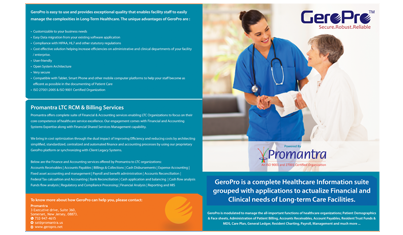Debunking Common Misconceptions About Billing in SNF

Billing in Skilled Nursing Facilities (SNFs) is often misunderstood by administrators, families, and even healthcare professionals. Misconceptions surrounding Medicare and Medicaid reimbursements, private pay requirements, and billing regulations can lead to financial inefficiencies and compliance risks. This article aims to clarify these common myths and provide insights into the best practices for SNF billing.
Myth #1: Medicare Covers 100% of Skilled Nursing Facility Care
Reality: Medicare covers SNF care only under specific conditions and for a limited duration. Medicare Part A provides coverage for up to 100 days of SNF care per benefit period for eligible patients. However, the coverage is structured as follows:
- The first 20 days are fully covered by Medicare.
- From 21 to 100, the patient is responsible for daily coinsurance.
- After 100 days, Medicare does not cover SNF care.
Best Practice: SNFs should educate patients and their families about the limitations of Medicare coverage and assist them in exploring alternative funding options, such as Medicaid or long-term care insurance.
Case Study: A Florida SNF experienced high patient dissatisfaction because families believed that Medicare covered all costs indefinitely. After implementing financial counseling sessions, the facility improved payment collections by 25% and reduced billing disputes.
Myth #2: Medicaid Covers All Skilled Nursing Services
Reality: Medicaid has strict eligibility requirements and does not cover all services. While Medicaid provides coverage for long-term care in SNFs for eligible low-income patients, it does not cover non-medical services such as:
- Private rooms (unless medically necessary)
- Specialized therapies beyond basic coverage
- Personal comfort items (e.g., personal TVs, beauty services)
Best Practice: Facilities should conduct financial assessments to determine if a resident qualifies for Medicaid and assist with the application process to ensure timely reimbursement.
Example: A New York SNF improved its Medicaid approval rate by 30% after introducing eligibility screenings at admission.
Myth #3: Private Insurance Covers SNF Stays Like Medicare
Reality: Private insurance coverage varies significantly and may require pre-approval. Unlike Medicare, private insurance policies often have higher co-pays and deductibles, require prior authorization before covering an SNF stay, and may impose strict limitations on the length of coverage.
Best Practice: SNFs should verify insurance benefits upfront, communicate cost expectations to patients, and ensure prior authorizations are secured before providing services.
Case Study: A Texas-based SNF reduced billing rejections by 40% by implementing a pre-admission insurance verification system.
Myth #4: Claim Denials Are Unavoidable in SNF Billing
Reality: Many denials stem from preventable errors in documentation and coding.
The most common reasons for claim denials include:
- Incorrect ICD-10 codes
- Missing physician signatures
- Insufficient medical necessity documentation
- Late claim submissions
Best Practice: SNFs should implement automated billing systems, conduct regular audits, and train staff in proper documentation practices.
Example: An Illinois SNF reduced claim denials by 35% after introducing AI-powered billing software to flag documentation errors before submission.
Myth #5: SNFs Cannot Negotiate Reimbursement Rates with Insurers
Reality: Skilled nursing facilities can better negotiate reimbursement contracts with private insurers. Many accept low rates, mistakenly believing contracts are non-negotiable. However, by presenting quality metrics and cost analyses, facilities can leverage data to negotiate better rates.
Best Practice: Track patient outcomes and use data to justify higher reimbursement rates. Compare competitor rates and negotiating based on market trends. Renegotiate outdated contracts with insurers.
Case Study: A California SNF secured a 12% increase in private insurance reimbursements after demonstrating superior patient recovery rates.
Myth #6: Billing Errors Are Not a Serious Issue
Reality: Billing mistakes can lead to compliance violations and legal penalties.
Common billing errors include:
- Upcoding or down coding services
- Duplicate billing
- Billing for services not provided
Fines for fraudulent or inaccurate billing under Medicare and Medicaid can reach millions of dollars.
Best Practice: Conduct internal audits regularly to identify billing errors. Use billing compliance software to flag discrepancies and train staff on regulatory compliance requirements.
Example: A Georgia SNF avoided a $500,000 Medicare penalty by proactively correcting billing discrepancies identified during an internal audit.
Myth #7: Paper-Based Billing Systems Are Just as Efficient as Digital Solutions
Reality: Manual billing processes lead to higher error rates, slower reimbursements, and increased administrative costs. Switching to Electronic Health Records (EHR) and automated billing systems enhances:
- Billing accuracy
- Claim submission speed
- Revenue cycle management
Best Practice: SNFs should invest in cloud-based EHR and billing software to streamline financial operations.
Case Study: A Pennsylvania SNF cut billing errors by 50% and improved cash flow by 20% after transitioning to automated billing software.
How LTCPro Can Help Skilled Nursing Facilities Overcome Billing Challenges
LTCPro is an advanced billing and financial management solution designed specifically for SNFs.
Key Benefits of LTCPro:
- Automated Claims Processing: Reduces errors and speeds up reimbursements.
- AI-Powered Coding Assistance: Ensures compliance with PDPM and ICD-10 coding.
- Real-Time Eligibility Verification: Prevents claim denials due to insurance ineligibility.
- Comprehensive Audit Tools: Identifies potential compliance risks before submission.
- Contract Management System: Helps negotiate better reimbursement rates with payers.
Case Study: A Tennessee SNF using LTCPro reduced billing rejections by 45% and improved Medicare reimbursements by 18%.
Understanding the realities of SNF billing is crucial for financial stability and regulatory compliance. By debunking common misconceptions, SNFs can optimize reimbursement processes, reduce claim denials, and enhance revenue streams.
Key Takeaways:
- Medicare does not cover long-term SNF care beyond 100 days.
- Medicaid has strict eligibility criteria and does not cover all services.
- Private insurance policies require pre-authorization and vary widely.
- Claim denials can be minimized with proper documentation and coding.
- SNFs can negotiate better reimbursement rates with payers.
- Billing errors can lead to serious penalties if not addressed.
- Digital billing systems significantly enhance efficiency and accuracy.
LTCPro provides the tools needed for efficient, compliant, and profitable SNF billing.
Optimize your SNF billing today with LTCPro, contact us to learn more!
A perfect fit for Skilled Nursing Facilities, Assisted Living Facilities, Home Health, Hospice and Other Day Care Centres.
Download BrochureRequest a demo


























